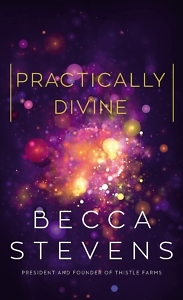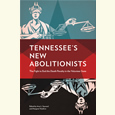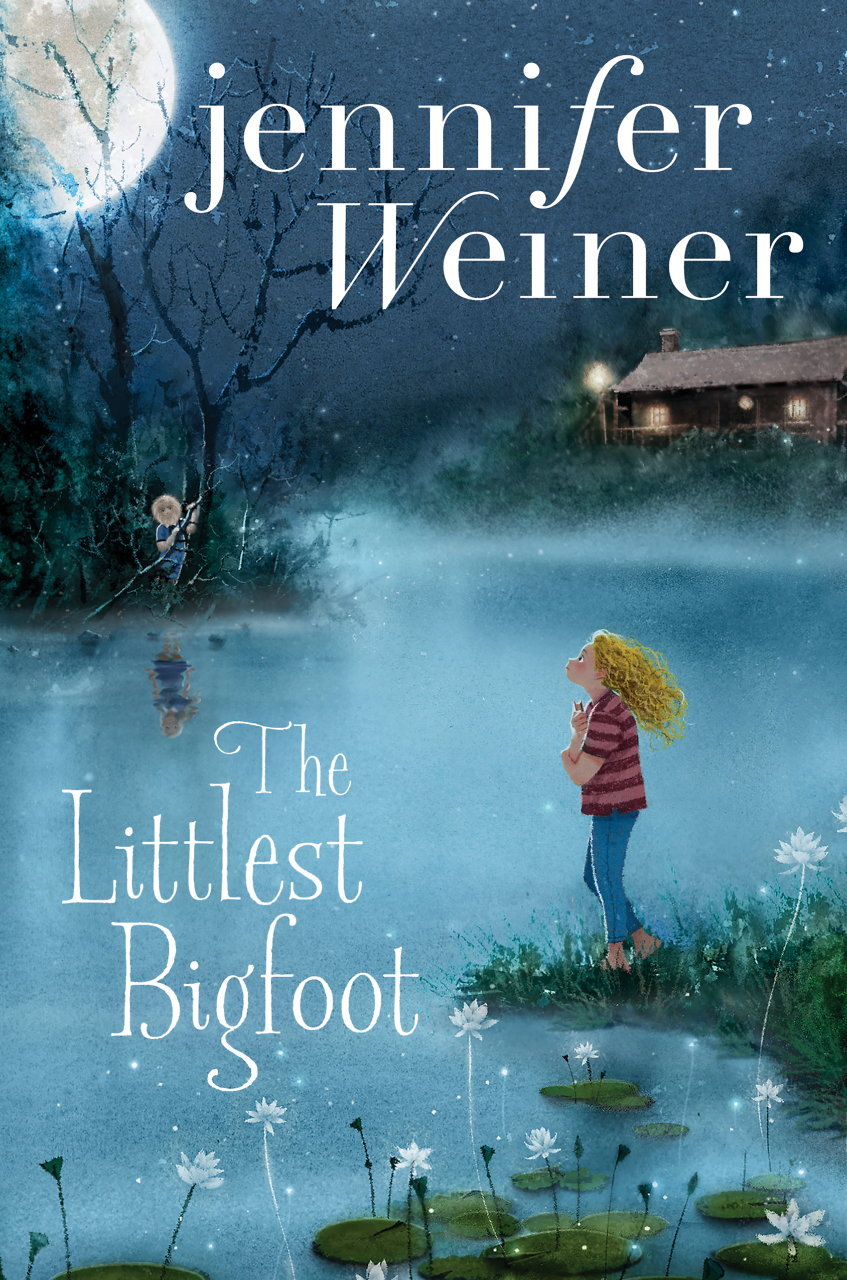Made from Angels and Dirt
Becca Stevens on trauma, resilience, and divine love
In Practically Divine, social entrepreneur and Episcopal priest Becca Stevens explores how the wisdom of women opens a place for love to grow even in the aftermath of trauma. Twenty-five years ago, Stevens founded Thistle Farms as a residential community and cottage industry for survivors of trafficking in Nashville. Since then, she has founded 10 justice organizations and helped to raise $58 million to lift women out of poverty and trauma. Thistle Farms has become a global movement for women’s freedom, with 500 free beds for survivors and 1,800 artisans from Nepal to India to Rwanda and Mexico contributing to its marketplace.
 Through her writing and her life, Stevens carries on the legacy of female mystics who, beginning in the Middle Ages, lived together in communities that supported women’s well-being and economic independence while teaching a Christianity rooted in finding God in the ordinary, serving others’ basic needs, letting go of material and emotional obstacles, and trusting dreams and experiences of love as prophetic visions of truth and healing.
Through her writing and her life, Stevens carries on the legacy of female mystics who, beginning in the Middle Ages, lived together in communities that supported women’s well-being and economic independence while teaching a Christianity rooted in finding God in the ordinary, serving others’ basic needs, letting go of material and emotional obstacles, and trusting dreams and experiences of love as prophetic visions of truth and healing.
The author of nine books, Stevens discusses how divine love shows up in the motherline, post-traumatic growth, and original grace. She answered questions from Chapter 16 via email.
Chapter 16: Why did you title the book Practically Divine?
Becca Stevens: I can see the words, “practically divine” looking fine on a t-shirt. I like it when I can see titles standing on their own and conjuring up ideas and visions. I named the book Practically Divine because I fell in love with the concept. It means, in a sense, both almost divine and close enough to divine. I think we are all practically divine, made from angels and dirt, almost and enough. The word divine is a heavenly word that evokes a sense of wonder. If we name something “divine,” we are saying it has spirit and contains some sort of mystery. I like thinking that we come from practically divine mixed in with some brokenness, and it gets blended together as we try to live out our lives.
Chapter 16: What is the “motherline,” and which wisdom from it are you currently favoring?
Stevens: I think of the motherline as the long line of mothers through which we trace our deep justice roots. Right now, having just returned from the hills of Oaxaca, Mexico, I am favoring the motherline wisdom of handmade knowledge. The Oaxacan women are practicing a 4,000-year-old pottery craft. This motherline of wisdom is carried in their hands as well as their heads.
When I think about the ego headbutting at the political climate summit talks this week, and contrast the speeches leaders give before they climb on private jets with the wisdom of Oaxacan women who understand climate change and vulnerability, I feel inspired and a bit ashamed. I wish I knew more, I think. I wish I lived a cleaner life.
It’s the motherline that is my saving grace. Because of that deep connection, our practically divine motherline, even though each struggled and compromised, they still passed down love as the greatest force for good. I want to pass down that long history of love, not my shortcomings. So I need to lean into love if that’s what I long to offer the world.
Chapter 16: In the process of writing this book decades after your mother died and as a mother of grown sons, did you uncover something that helped you understand your mother in a new way?
 Stevens: My mom plays a significant role in this book. She moves the story along and gives the reader a solid foundation from which to feel the practically divine nature of everything around them. My mom’s role in this book was not so much about uncovering something as it was to provide context and stability so I could uncover more about the world I live in presently. My mom was a remarkable woman, and she planted the lessons she wanted her children to take with them, in plain sight. I love that I have uncovered that as I have gotten older. I have taken on some of her attributes, for good and bad, like vacuuming around my sons’ beds at 6:30 am on Saturday mornings!
Stevens: My mom plays a significant role in this book. She moves the story along and gives the reader a solid foundation from which to feel the practically divine nature of everything around them. My mom’s role in this book was not so much about uncovering something as it was to provide context and stability so I could uncover more about the world I live in presently. My mom was a remarkable woman, and she planted the lessons she wanted her children to take with them, in plain sight. I love that I have uncovered that as I have gotten older. I have taken on some of her attributes, for good and bad, like vacuuming around my sons’ beds at 6:30 am on Saturday mornings!
Chapter 16: At what point did you know the local outreach you were doing to offer women a safe place to live, work, and heal could support a global movement, and how do you sustain its growth?
Stevens: I have to relearn that working locally is engaging the world and vice versa, over and over! I was talking earlier about how I just got back from Oaxaca, Mexico. I came home to a new employee in Nashville at Thistle Farms who told me the story of how she was trafficked in Oaxaca four years earlier. The boundaries in human trafficking are porous, and I think our work in justice has to be as well.
Thistle Farms’ first global partner was a group of women in Rwanda making healing geranium oil. All were survivors of the genocide in which 1,000,000 people were killed in 100 days in 1994. It didn’t feel like a global movement at the time; it felt more like 30 women in Rwanda were partnering with 30 women in Nashville, and together we could create some amazing products. It was that partnership that made it possible to create an additional 30 partnerships with another 1,000 women. Growing a movement is interesting. It is not a consistent mathematical equation. It happens in spurts and in surprising ways that catch me unexpectedly. I am still learning how to help lead it!
Chapter 16: You write: “I don’t think the injustices of this world and the tragedies are a part of the divine plan,” and yet all your stories are infused with God and grace. How do you reconcile the destructive and constructive forces in our lives and world?
Stevens: I find that even in the injustices and tragedies, there is the presence of love. And if love is present, the divine is there. I don’t reconcile forces in the world, I just lean into the truth of love that is always present, no matter how bad it gets.
Chapter 16: Throughout the book, you revisit the mental and emotional patterns of trauma in women’s lives. How do abuse, anger, and grief shape the spiritual life?
Stevens: I love all the research and writing being done in the area of post-traumatic growth. In the research, people learn not just about the damage done by trauma, but also about the potential for growth and compassion. Many of us learned some of our most valuable lessons in the midst of some of our worst trauma. It’s how we understand resiliency and courage. It’s how we can develop such passion for our work and gratitude for the mercy we know. Being in the midst of trauma can be a powerful place in our spiritual lives.
Chapter 16: In response to the abusive obsession with “original sins,” other Christian writers are reflecting on terms like “original goodness” or “original blessings,” while your book explores the concept of “original grace.” What does “original grace” mean for you?
Stevens: It simply means our journey begins and ends with the divine. It’s where we come from and where we are headed.
Beth Waltemath, a native of Nashville, is a writer, writing coach, and a minister. She currently lives in Decatur, Georgia. Her essays have appeared in The New York Times, The Washington Post, and Chapter 16.





